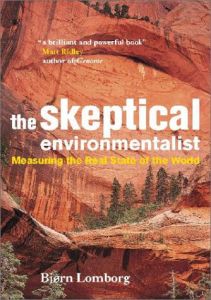Join getAbstract to access the summary!

Join getAbstract to access the summary!
Bjørn Lomborg
The Skeptical Environmentalist
Measuring the Real State of the World
Cambridge UP, 2001
What's inside?
The sky is not falling! The sky is not falling!
Recommendation
The earth is not running out of oil. Global warming will not destroy our civilization. Starvation is being eliminated. Pollution is receding, and the environment, in general, is clean and in pretty good health. Do these statements sound preposterous? If so, you’ve probably been spending too much time listening to the scaremongers that make their livings through the media. Or at least, that’s the opinion of Bjorn Lomborg, who shoots down many popular but wrongly held notions with his fresh analysis of long-term environmental and health data. His book is impeccably documented, to the point that many readers will get lost in technical details and statistical analysis. For that reason, getAbstract.com recommends this book primarily to serious students of environmental policy.
Summary
About the Author
Bjorn Lomborg is an Associate Professor of Statistics in the Department of Political Science at the University of Aarhus in Denmark. He has published in international journals in the fields of game theory and computer simulations.

















Comment on this summary